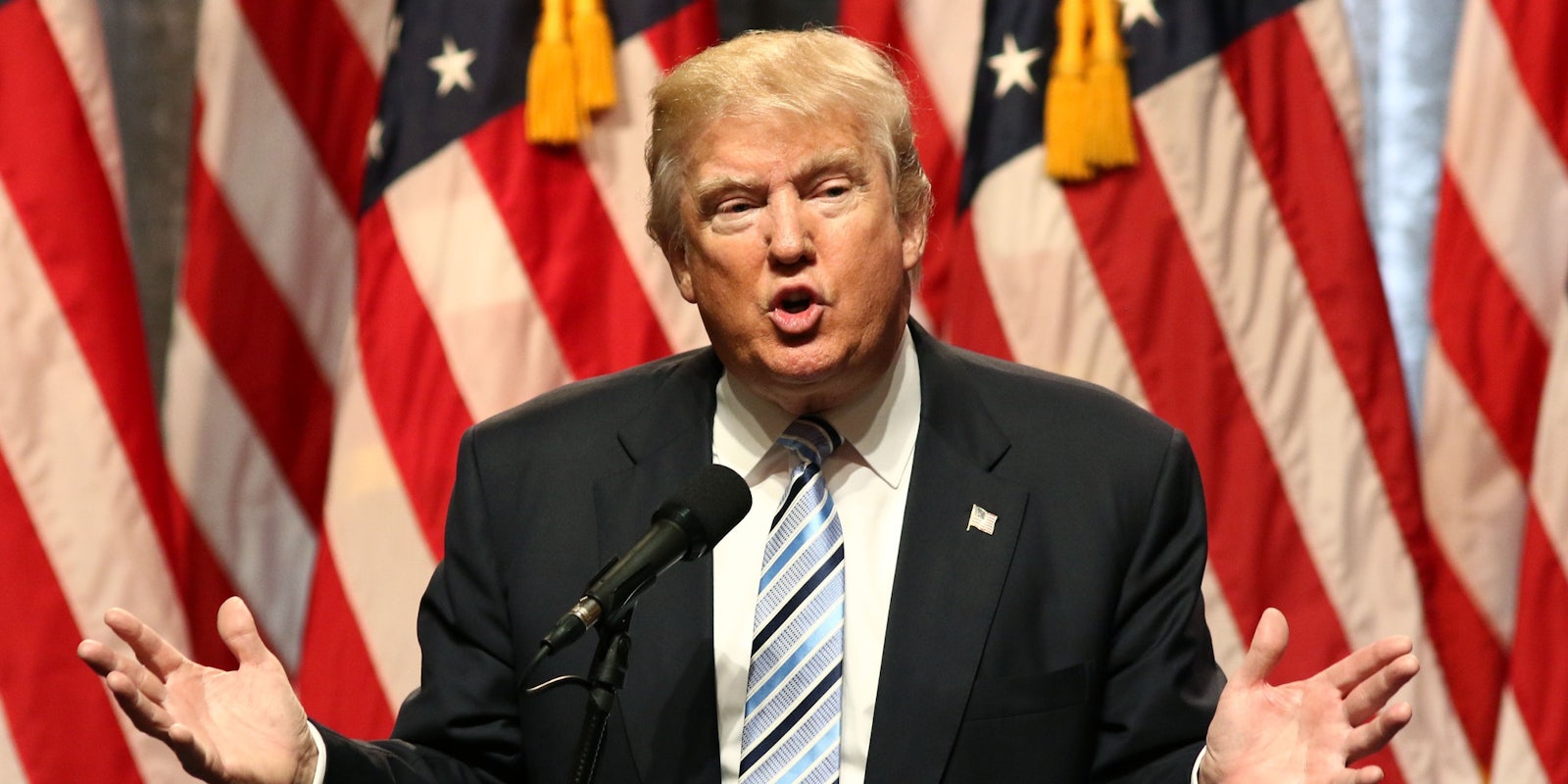All the hubbub about “fake news” helping Donald Trump win the election is just a bunch of hot air, according to a new study.
Conducted by researchers at Stanford and New York University, the study, titled “Social Media and Fake News in the 2016 Election,” found that fake news stories had little measurable effect on the outcome of the 2016 presidential election.
Although the study did find that known fake news stories favoring Trump were shared 30 million times on Facebook, while stories favoring Democratic nominee Hillary Clinton were shared 8 million times, few of the 1,200 respondents in the study remembered seeing the stories let alone believing they were accurate.
Furthermore, the researchers found that few Americans relied on social media as their primary source of election news, with only 14 percent saying they did so. Television news, they found, was “more important by a large margin.”
“In summary, our data suggest that social media were not the most important source of election news, and even the most widely circulated fake news stories were seen by only a small fraction of Americans,” the researchers wrote. “For fake news to have changed the outcome of the election, a single fake news story would need to have convinced about 0.7 percent of Clinton voters and non-voters who saw it to shift their votes to Trump, a persuasion rate equivalent to seeing 36 television campaign ads.”
Meanwhile, the term “fake news” has continued to shift in meaning and is now regularly used by Trump himself in order to cast doubt on reports that paint him in a negative light.
H/T Poynter


